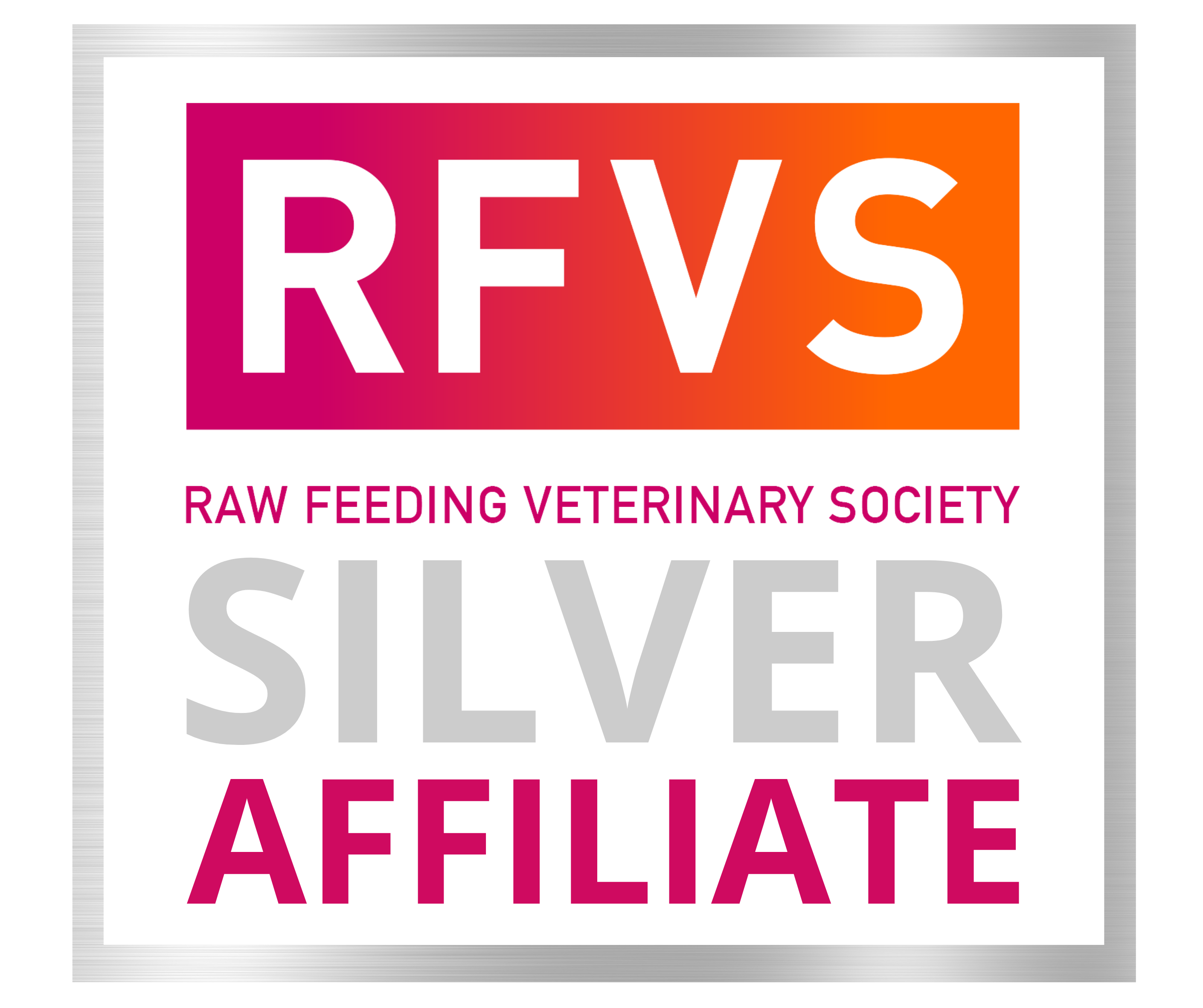How to Ensure a Balanced Raw Diet

NUTRIENT IMBALANCE
The AAFCO 'complete and balanced' claim means that the food contains all the nutrients required for most dogs to survive in good health for a period of six months (and shorter for puppy/kitten diets). Feeding a raw diet is a bit like feeding yourself: you eat a variety of foods, with the expectation that this will meet your nutrient needs over time.
A nutrient imbalance can happen because:
- The diet is not well-planned, or
- The animal has an impaired ability to absorb/utilise certain nutrients, due to ill health, or genetic issues, or
- Both!
Even if a raw diet is very well planned, an animal with impaired absorption/utilisation of nutrients may still struggle to get all they need from the diet.
Nutrient imbalance is a risk within processed diets too (we recommend feeding a well-planned, raw, species-appropriate diet) however, if you are going to feed a processed diet, we recommend a veterinary and AAFCO-approved diet. But even so, AAFCO approval is not a fail-safe, and owners need to be aware that nutrient deficiencies can still occur.
HOW TO MINIMISE IMBALANCES
Our biggest tip for balanced raw feeding is to offer a mix of meat, bones, organs, green tripe from a variety of prey sources.
- Dogs and cats are carnivores. An appropriate diet for them is a variety of prey-animals (mostly small herbivores). This is supported by studies in zoology and nutritional ecology.
- Wild populations of cats and dogs may have a preferred prey source, but they never subsist on just one source. They eat a variety of prey. This will give them a varied nutrient intake. The nutrient composition of the prey will also change with the seasons. We recommend feeding from at least three different prey species over a week.
- Wild populations of cats and dogs eat meat, bones, organs, and often tripe too. They do not just eat meat. Feeding an all-meat diet will cause mineral deficiencies, and is dangerous to your pet's health!
- Wild cats and dogs are able to produce strong gastric acid to help them digest their raw diet, and to deal with any pathogens that may be on their food. The production of strong acidity is dependent on the level of protein in the diet. For this reason, we recommend that you do not dilute the protein content of the raw diet by adding in processed food (which is high in carbohydrate). Feed EITHER a raw diet OR a processed diet, but not both. If we suspect that a dog or cat is not producing adequate gastric acid, we may recommend that they hold off including bones in the diet for the time-being. It is vital that these pets are eating minced product containing ground bone, so that their mineral needs are met.
RAW FEEDING ISN'T A PANACEA
We see dogs and cats experience dramatic health improvements when they change from a processed diet to a well-planned raw diet, but raw feeding is not a panacea, and will not fix every problem! Please talk to your vet if medical issues are ongoing.
If your pet is unwell and you are currently feeding a processed diet, please let your vet know before you change to raw. This is particularly important in some conditions which may need close management (such as diabetes).
If, after changing to Raw Essentials, you are not seeing the improvements that you hope for, please talk to our staff so they can suggest appropriate changes to the diet.

